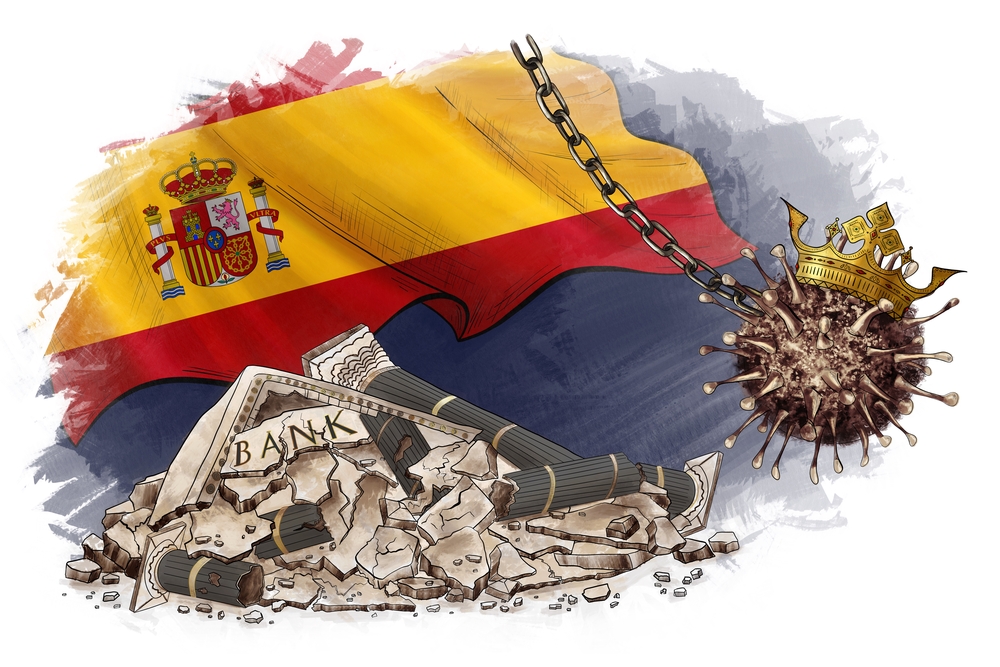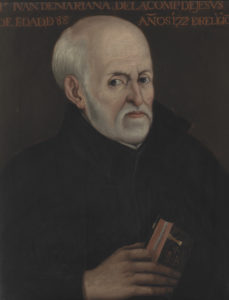
The history of economic thought did not develop in a straight line from superstition to enlightenment. Rather, it contains a lot of back and forth, zig and zag to come to its present state. For this reason I would like to talk about Juan de Mariana’s “On the Coinage,” an essay by a 16th century Spanish Scholastic, in which he explained some of the fundamentals of issuing money. Mariana’s opinions on monetary theory can also be found in “A treatise on the alteration of money,” which includes an overview of his political views. For someone who wants to get into Mariana I suggest the essay first. Many of the arguments expounded here have similarities with modern theory, and in a particular case he makes a statement very similar to Milton Friedman’s.

Mariana was born to a poor family in 1536 near Toledo, and in 1553 he was admitted to the prestigious University of Alcala. After completing his studies, he went on to teach theology and philosophy in Rome, Sicily, and Paris until the age of 37. He then retired due to problems with his health, but this did not stop him from becoming a prolific writer. Among many books, he wrote a famous history of Spain, Historiae de rebus Hispaniae, and De Rege et regis institutione (On the King and the royal institution); the latter will be of more interest to us since that text includes his political and economic theory.
Juan de Mariana is considered a forerunner to marginalism and the Austrian school of economics. Murray Rothbard called him “The learned extremist” and rightfully so. Mariana believed that government was based on popular consent, and any actions that went against this, like imposition of new taxes and appropriation of private property, were justification for the assassination of a king. He called this tyrannicide. He supported free trade and argued against the debasement of currency, which he condemned as intervening with the efficient operation of the economy. He was often judged harshly by his fellow clerics, and his books were banned in France as undermining the foundations of absolutism. However, he lived a life of relative safety and died at the age of 88 in 1624. For more on his life you can read Jesus Huerta de Soto’s Biography of Juan de Mariana: The Influence of the Spanish Scholastics (1536-1624).
Mariana’s monetary theory has many interesting aspects. Regarding the debasement of currency by mixing gold and silver coins with copper, he says:
Mariana uses harsh words against those who try to manipulate the value of the currency to solve economic problems. Yet today such policies have spread among the governments of the world. Some amount of currency devaluation is often used for a number of reasons, such as boosting exports or increasing short run employment. Mariana would be greatly disappointed.
Mariana makes another interesting observation based on his theory of natural rights. As the king has no justification to mess with his citizens’ property or establish taxes without their consent, the same applies to inflation: “It, too, is a kind of tax by which an amount is extracted from the possessions of subjects.” This is very similar to what Milton Friedman would later say: “Inflation is taxation without legislation”.
Mariana explains that money has two values, intrinsic and extrinsic. The former is established by the quality and quantity of the metal and the latter is set by law. In plain language, intrinsic comes from the market, extrinsic comes from the state. Here again, Mariana has some harsh things to say about those who separate the two.
The only reason for which debasement of currency is reasonable is as a last resort in the case of war, when all other means of paying the army have been exhausted and the independence of the state is uncertain. Even then, once the crisis has ended, the currency should be left to stabilize again at its former levels.
There is one point in Juan de Mariana’s reasoning that I have to disagree with. He argued that if a fiat currency was used, then no one would be willing to exchange goods and services for the new currency since it is intrinsically worthless, a mere piece of paper. I can acknowledge all the problems created by incompetent monetary policy, but I doubt that such chaos in commercial activity would happen from its adoption. After so many years of being off the gold standard it is reasonable to say that de Mariana has exaggerated its consequences.
I will end with the same words de Mariana used to close his essay:
[Editor’s note: See also this Essay by Maryann Keating at AdamSmithWorks, Adam Smith, Classical Liberalism, and the Legacy of Hispanic Scholasticism.]
Chris Loukas was born in Greece and is an economic journalist and recipient of a bronze medal in the 2022 International Economics Olympiad. His articles have been featured by the Foundation for Economic Education, the Mises Institute and Adam Smith Works.

READER COMMENTS
Mark Brady
Oct 2 2022 at 3:01pm
“Mariana explains that money has two values, intrinsic and extrinsic. The former is established by the quality and quantity of the metal and the latter is set by law. In plain language, intrinsic comes from the market, extrinsic comes from the state. Here again, Mariana has some harsh things to say about those who separate the two.”
Does Mariana use those very words, intrinsic and extrinsic? I suggest that no value is in fact intrinsic, and that the correct distinction is between commodity value and monetary value, both of which arise through the actions of individuals trading in the market, and which are modified by government intervention over time.
Chris Loukas
Oct 2 2022 at 5:13pm
He indeed uses these words, here is the original text from his essay on coinage.
“The value of coinage is twofold. First, there is its natural value
based upon the quality and quantity of the metal used, which can
be called its “intrinsic” value. The second value is its legal and
“extrinsic” one, which the prince sets by law, as he does the prices
of other goods so that they are not sold for more than what the law
without question has ordained. He is a fool who so separates these
two values such that the subsequent legal value does not stick to its
natural value”
You can find it here.
He means in it the way you described but I had to use the original terminology to remain faithful to what the author wrote.
David Henderson
Oct 2 2022 at 5:13pm
Good point, Mark. Jeff Hummel drove that point home in his Masters class in monetary theory.
Chris Loukas
Oct 2 2022 at 5:21pm
He means it in the way that you describe it. Intrisic comes from voluntary exchange and extrinsic from legislation.
Andrew_FL
Oct 2 2022 at 3:29pm
Mariana would surely not have used the term “snake oil salesmen”-a serious anachronism. I’m curious what the original was before this, creative bit of translation.
Chris Loukas
Oct 2 2022 at 5:19pm
The phrase comes from the translation published in the Quaterly Journal of Austrian Economics done by Hazzard Bagg. You can find it here. In the essay it is mention that Bagg is an instructor of Greek and Latin at Lincoln School in Providence, Rhode Island. Maybe you are right and he has made a change. I do not know latin so I cannot tell. I count on the his honesty and the credibility of the journal.
Andrew_FL
Oct 4 2022 at 8:33pm
I do not intend to impugn any motive I am simply curious what idiom was used originally. It is not dishonest to translate no 100% literally. I assume that what was originally said conveys the same idea.
AtlasShrugged69
Oct 2 2022 at 11:25pm
If that’s really ol’ boy in that picture, someone should have told him to smile. Hard to sell the truth if you look like someone just made a pass at your girl
Thomas Lee Hutcheson
Oct 3 2022 at 6:11am
This (not to vary the amount of money in circulation) would be good advice in the absence of the need of relative prices to change (supply and demand shocks) and greater difficulty of prices to adjust in one direction than the other, typically downward than upward. Of course given the difficulty of fine adjustments in a coinage system, the shocks would have to be pretty large (existence of the regime, Miranda gives as an example) for adjusting the coinage.
I’d say the modern day application of his insights for a fiat system are Price or NGDP level targeting.
Reagan LeCroy
Oct 3 2022 at 1:37pm
To be honest, I’ve never heard of Mariana. He was very ahead of the times and I found this article to be a great insight on how his ideas were correct so long ago, yet still need to be argued today.
Roger McKinney
Oct 3 2022 at 4:38pm
Good intro to the School of Salamanca! I summarize the works of Rothbard, Schumpeter, Chafuen and others as well as show how the Dutch Republic first implemented their principles and became the first capitalist country in my book God is a Capitalist: Markets from Moses to Marx.
Comments are closed.